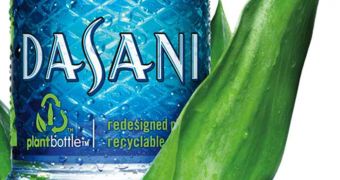Cola-Cola and Pepsi are engaging all their efforts in a new green competition. Both companies plan to redefine their current position as eco-conscious major brands by launching and commercializing soda bottles entirely made of plants.
Such an achievement would definitely count as a much greener alternative to common plastic, but improvements are still far from becoming visible, the New York Times informs.
Coke has revealed it would work with several companies to advance the research in this sector. It estimates that actual plant-based bottles could start being sold in a matter of years.
On the other hand, Pepsi is not losing any time and has announced it would start testing products next year. The company hopes to obtain 200,000 green bottles.
“The test is very important in really determining efficient cost and manufacturing processes,” explained Denise H. Lefebvre, Pepsi's vice president for global beverage packaging.
Coke was the first to come up with this idea in 2009, when it has launched its Dasani water sold in bottles containing up to 30% plant-based plastics. The company has recently announced a new green deadline: it is willing to make all its bottled products comply with the same standard, by 2020.
In order to green up its bottles, Coke is counting on the support offered by Gevo and Avantium. Pepsi has indicated that it is currently following the same strategy but has refused to reveal the names of the potential partners.
Although scientists have managed to obtain plastic entirely made of plants in their laboratories, things appear to be much more difficult when it comes to large-scale production.
The new generation of bottles is considered to be a sustainable alternative, since it would trigger a lower amount of greenhouse gases reaching the atmosphere.
Its environmental benefits could vary, depending on the kind of plants used in the process. Experts exploiting this possibility say that agricultural waste products represent the best resource in this case.
Using actual crops is highly unrecommended, because a potential large-scale production could threat the food security system, increasing food prices and affecting poor people all across the globe.

 14 DAY TRIAL //
14 DAY TRIAL //